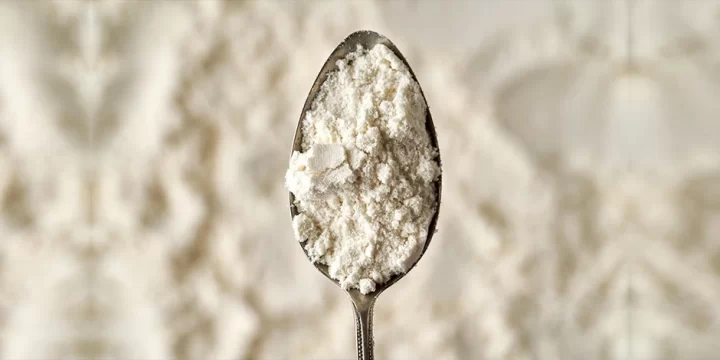Athletes will always plan their protein intake to a post-workout timing, which is certainly one of the most crucial times.
But most of my clients are very surprised to hear that there are other great times to start taking whey protein powders to boost health and fitness results.
But before you just randomly pick different times of the day, let me show you the information we got from a nutritionist.
There are plenty of surprises, and you’ll be able to make much better diet plans with this guide we’ve made for you.
Quick Summary
- To maximize health and fitness results, consider taking protein shakes post-workout, before bed, or early in the morning.
- Tailor your protein shake intake to your specific goals, such as weight loss, muscle building, or preventing muscle loss.
- Research by the National Institute of Health suggests high-protein diets significantly contribute to weight loss, particularly in reducing stored fat.
- In my experience, incorporating protein shakes at strategic times, like post-workout or before bed, significantly enhances muscle recovery and overall fitness.
Is There A General Best Time To Take Protein Powder?

OK, so generally speaking, the time your body will need the most amount of protein intake is when building muscle tissue.
This process is fueled by something called protein synthesis, where individual cells take amino acids and use them as building blocks for new tissue.
But this also happens when there is damage to muscle fibers from a tough weight lifting routine.
So for pretty much all athletes reading this, a post-workout protein shake is generally going to be a good approach. It certainly beats having to consume post-exercise meals of a few chicken breasts.
But other options would dictate different timing.
Let’s take a closer look.
Why Is Timing Your Protein Intake So Important?

Here’s the thing, a typical protein shake, whether it’s whey or soy protein, is already partially broken down and in liquid form.
Compare that to a couple of eggs or some lean meat that your stomach first has to break down before absorbing the macro and micronutrients.
When you consume protein shakes, the amino acid content is almost immediately ready to be absorbed into your system, and in some cases, you can see a boost within 30 minutes.
As a result, you want to make sure that your body gets that boost at a time when it has the maximum effect for a specific outcome.
Finding The Best Time For Your Goals

There can be some significant differences in your timing requirements when you have different goals for your diet and exercise plans.
Here’s how to approach it.
1. Weight Loss
Research by the National Institute of Health (NIH) shows that high-protein diets may significantly contribute to losing body weight, especially in the form of stored fat [1].
Sounds great, right?
Now, this still requires that you exercise and stick to a net negative calorie intake, but adding one or two protein shakes to your daily meal plans could provide quite a significant boost.
I personally mix up a protein supplement late morning or early afternoon, especially on days when my workout is scheduled for later. This strategy has helped me maintain energy and focus, and I've noticed a marked improvement in my workout performance.
It should help fill you up for longer, stabilize your blood sugar, and force your body into burning off more fat.
“A Johns Hopkins University study found that a diet in which roughly a quarter of the calories (about 60 percent more than the recommended 10 to 15 percent) come from lean protein sources reduced blood pressure, LDL ("bad") cholesterol levels, and triglycerides better than a traditional higher-carb diet.”
- Selene Yeager, Writer at WomensHealthMag.com
2. Muscle Building

Whether you’re a bodybuilder in a bulking phase or just someone who’d like to tone up a bit for beach season, muscle growth is going to be heavily dependent on the nutrients you make available.
Some nutrients, like vitamins and minerals, you’ll need to take in throughout the day. But to effectively build muscle, you need enough protein supply for the entire repair, rebuilding, and recovery process.
Recent research from the Journal of the International Society of Sports Nutrition suggests that along with a post-workout boost, you should consider a general high-protein diet to achieve maximum effect [2].
3. Prevent Muscle Loss
This advice is important for two groups of people.
One group is made up of bodybuilders going through a cutting phase to lose fat who will inevitably also lose some lean body mass. It’s impossible to avoid, but there are ways to reduce the impact on your body composition.
In a typical cutting phase, you’ll aim for a calorie deficit for a few days, and if you aim for more protein than carbs in your food, you should be able to limit the impact on muscles.
The other group is made up of elderly people, where natural aging results in an increased loss.
Boosting protein intake through supplements has been shown to help that aging effect on muscles.
4. Physical Performance Boost

Research suggests that increased protein consumption over several months doesn’t just impact the muscle recovery phase.
One study by NIH, in particular, looked at the effects on muscle strength when using a protein supplement as a form of pre-workout drink [3].
And the results were quite surprising.
Initially, there doesn’t seem to be a significant difference in performance, but after several weeks of regular supplementation, both highly trained and untrained people responded positively from a muscle strength point of view.
So, you could either make sure that your meal plan includes plenty of protein a few hours before heading to the gym, or you simply mix up a pre-workout shake.
5. Balancing Diet Macros
Any dietitian will tell you that you should aim to get the majority of your dietary protein from your food.
And if you have a dietitian on constant standby and a trained chef to translate your protein needs into your daily meals, then you probably won't need a huge amount of supplements.
But for most people, that’s not reality.
So, with the help of our free macro calculator, calculate your macro ratio and obtain all the necessary information for further diet planning.
An excellent alternative for a dietitian is to install an app like Noom on your phone that will suggest foods with an ideal source of carbohydrates, fats, and proteins, according to your macro ratio.
What are the best protein powders out there:
What Happens To Protein When You Take It After A Workout?

One thing I want to revisit here is the most common situation where you have a protein shake after a workout.
It’s where most athletes will look for the benefits of tissue repair and that fancy-sounding term called muscle protein synthesis. You’ll often hear people say it, but not many of them actually understand what it means.
Time to make you look like an expert.
After water, protein makes up the largest amount of the mass in muscle tissue. And because our muscles have to constantly repair minor and major damage, nature has perfected a process that transforms essential and non-essential amino acids into new muscle fibers.
Should You Take Protein Supplements Before Going To Bed?

Let’s say you’ve completed a whole body workout and gone for a run, and you expect a long muscle recovery.
Most of that repair will happen during the night, and people often jump on the idea of taking an additional casein protein shake just before bed.
Unfortunately, that may lead to some bloating and an uncomfortable night's sleep.
I would generally recommend taking some plant proteins like rice and pea protein an hour before bed or first thing the next morning.
And I would limit it to about 15 grams of protein per evening shake, which should still be enough for muscle repair.
Long-term Effects of Regular Protein Shake Consumption
Regular and excessive consumption of protein shakes over the long term may pose certain concerns. High protein intake, especially from supplements, can strain the kidneys, potentially leading to kidney damage or dysfunction in individuals with pre-existing renal issues.
Moreover, relying on shakes may result in an imbalanced diet, lacking the diverse nutrients found in whole foods. Some protein powders may contain additives, preservatives, or excessive sugars, contributing to health issues such as inflammation, insulin resistance, and weight gain over time.
Furthermore, habitual reliance on shakes might hinder the development of healthy eating habits, potentially leading to nutritional deficiencies. To mitigate these risks, you should prioritize whole food sources of protein, vary their nutrient intake, and consider protein shakes as supplements rather than replacements for balanced meals.
FAQs
When Should You Start Using Protein Powder?
You should start to consume protein powder from the moment you start a diet and fitness routine. Higher protein consumption will help both with fat loss and faster recovery times after training.
What Happens if You Drink Protein Shakes without Working Out?
Nothing much will happen if you drink a protein shake without working out. Your body needs both protein and exercise to burn fat and bulk up lean mass.
References:
- https://www.ncbi.nlm.nih.gov/pmc/articles/PMC5644969/
- https://jissn.biomedcentral.com/articles/10.1186/1550-2783-10-53
- https://pubmed.ncbi.nlm.nih.gov/25169440/
About The Author
You May Also Like






